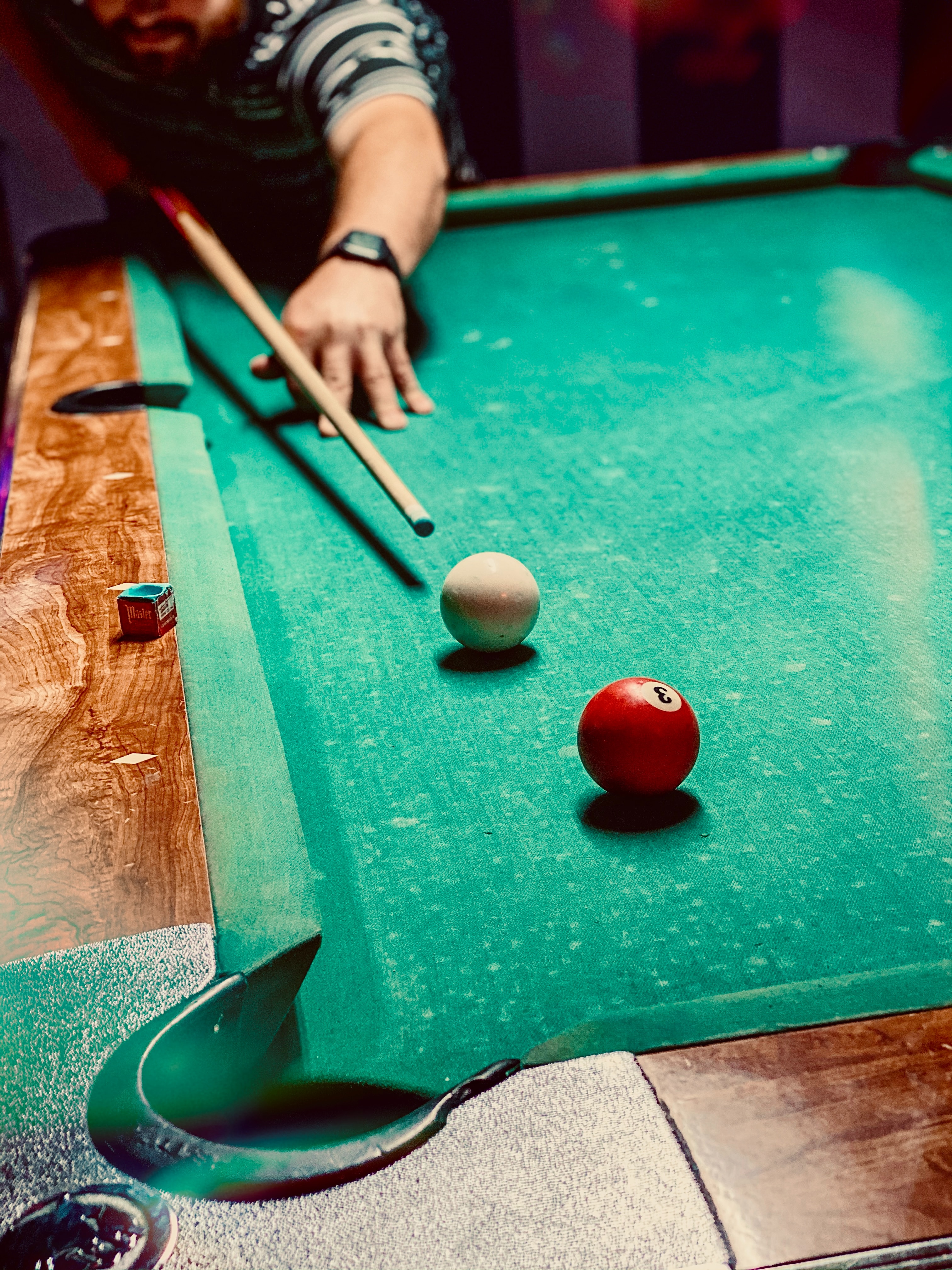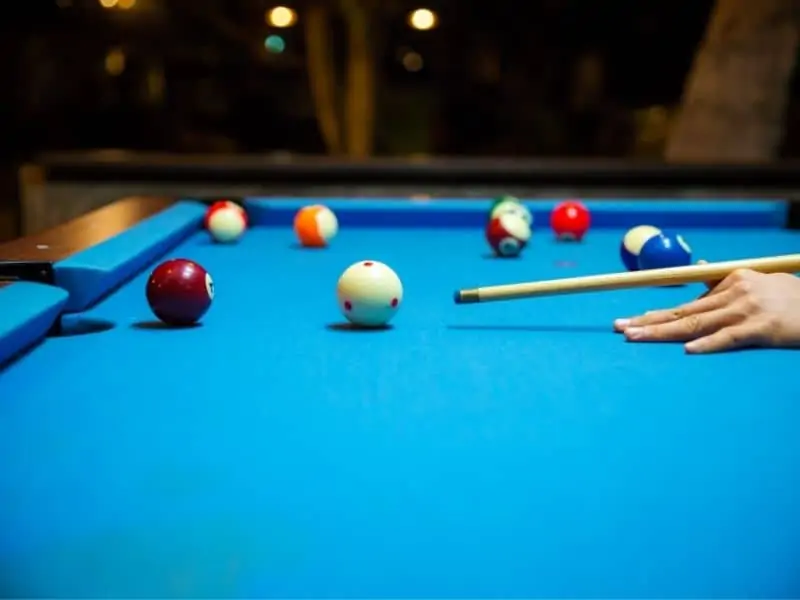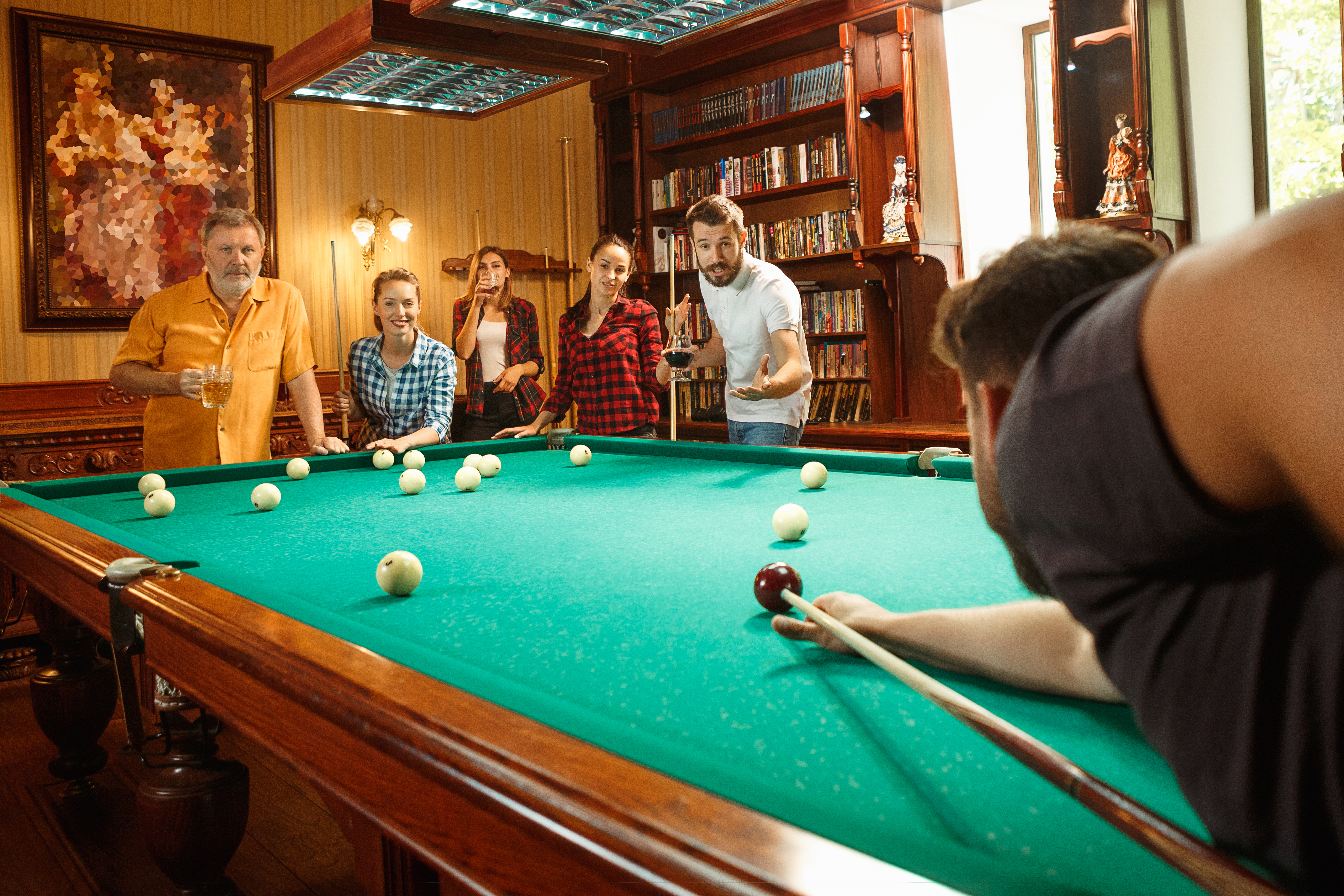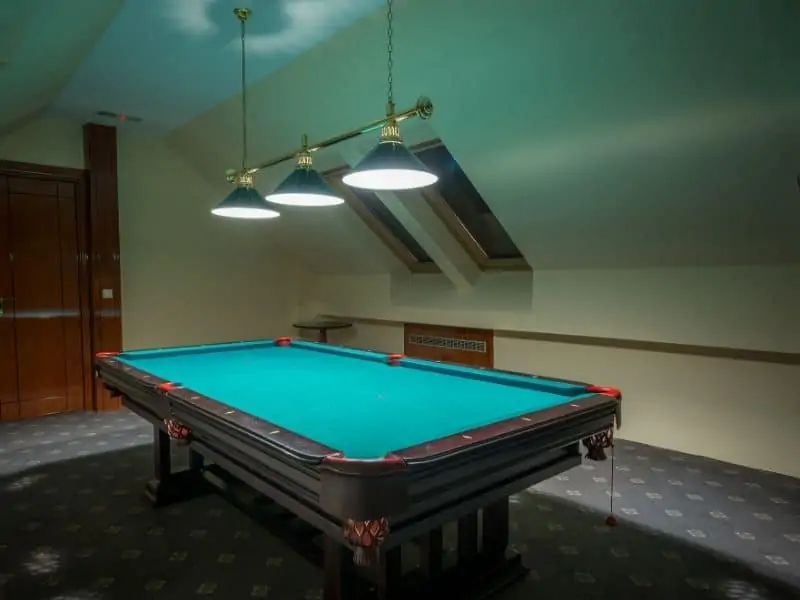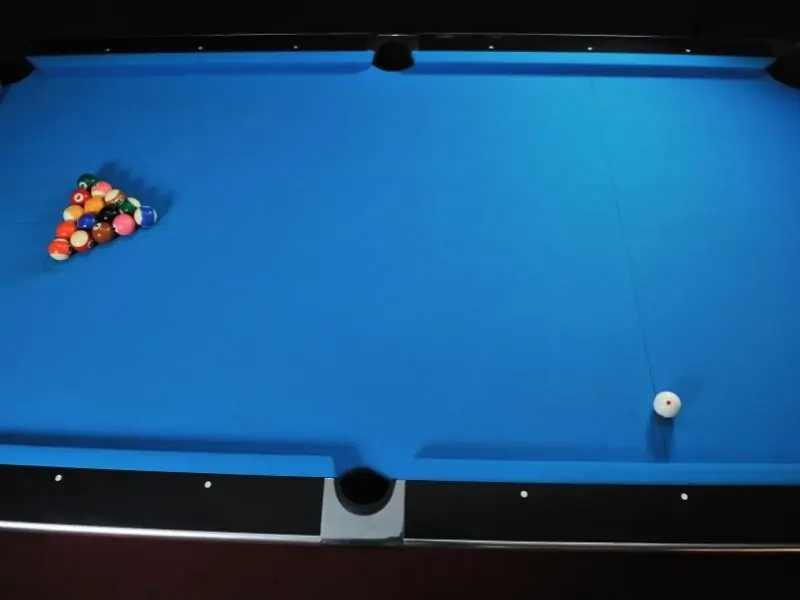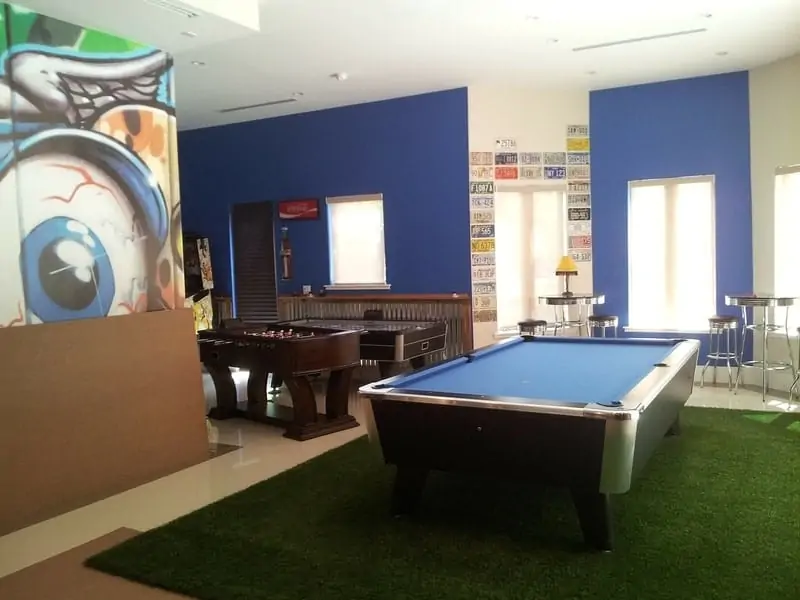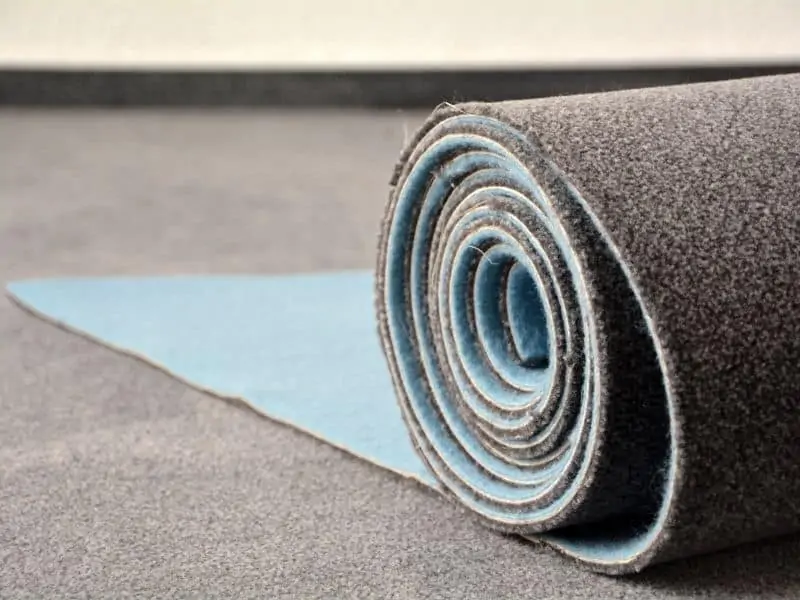When it comes to selecting a pool cue, one of the most overlooked factors is the cue’s weight. A lot of players only think of this as an afterthought, or perhaps not at all. But the question remains, “Does pool cue weight really matter?”
The short answer is yes. Pool cue weight matters for a number of reasons. The weight of your cue can drastically vary how well you maintain control of the cue ball as well as how accurate your shots are in general.
Unfortunately, many new players don’t put a lot of thought into this critical part of mastering the game. Not to mention the fact that they’ll often choose a pool cue weight based on what their favorite professional player uses.
That’s a mistake, and you can rest assured that these champions put a lot of consideration into many aspects that help them play better and win, including their pool cue weight.
If you’d like to know more about how pool cue weight can affect your game, keep reading to learn more. In this article we’re going to share with you everything you need to know about pool cue weight so you can select the right weight for you.
Want to see some pool cues we like? Check out these articles!
- Best Pool Cues for the Money: A Cue for Every Budget
- 7 Best Pool Cues Under $200: These Cues Are Amazing!
- Best Beginner Pool Cues Under $100
- 9 of The Best Pool Cues for Women
The Baseball Bat Analogy
If you’ve ever swung a baseball bat, chances are you noticed that a light bat is easier to swing than a heavy one. You may have also noticed that if you increase the weight of the bat your using, you can hit a baseball much further.
And, each time that you double the weight of the bat it can potentially lead to an increase of about 12mph. That translates to having a faster ball velocity, and the ball travels farther when you hit it.
Sadly, you’ll never be able to hit this level of performance if the bat is too heavy for you. Then, you have to settle for a happy medium with a lighter bat. The baseball analogy works for billiards, as well. The wrong pool cue weight will affect your abilities and, ultimately your performance.
In a nutshell, you will continue to strike out on the billiard table until you change your mindset about pool cue weight and other factors that can make you more skillful.
Selecting Your Cue Weight
Your first introduction to pool cue weight was most likely when you glanced at the small numbers on a house cue at a pool hall or bar. House cue weights generally range from about 19 to 20 ounces. Pool cue’s standard weight ranges, based on specs from manufacturers, run from 18-21 ounces, with half-ounce intervals in-between.
The standard weight range works for most, and it pays to try multiple cue weights over a few weeks to see what best fits your personal abilities and preferences if you can. With that in mind, many players begin with 19-ounce or 20-ounce cues.
If you’re still unsure on which pool cue weight to get, stick with the commonly used 19-ounce cue. Later, you may find that a different weight pool cue is a better fit after you’ve had enough time to try a few out…
You can take some of the guesswork out of selecting the weight of your pool cue by purchasing one that gives you the ability to adjust the weight yourself. A lot of pool cues made by Viper have this option, giving you the ability to adjust the weight of your cue from 18-21 ounces quickly and easily.
Heavy vs. Light Pool Cues
If you use a lighter cue weight such as those weighing 18 or 19 ounces, then the object ball will go into the pocket slow and the cue ball will travel fast. This is because a lighter cue generates more snap.
If you’re having trouble controlling the cue ball, it could be because your cue is too light. There is a direct correlation between your cues mass and speed and the cue balls speed. While many players like the movement they can get out of the cue ball with a light cue, learning to control this movement takes a lot of time and practice.
By the same token when using a heavy cue, the object ball travels to the pocket faster, and the cue ball travels slower. The reason is that you have more weight to move and because a heavier cue takes more force to move than a lighter one, it wont generate as much of a snap.
If you notice that you can’t draw the ball very well, then it’s likely that your cue is too heavy. The weight of the cue is not allowing you to generate enough downward spin on the cue ball.
In summary, a light pool equals faster cue ball speed and slower object ball speed after contact has been made. Heavy pool cues equal slower cue ball speed and faster object ball speed after contact has been made. If your cue is too light for your abilities, it may result in a lack of cue ball control. While if your cue is too heavy, it could result in the same.
Finding the perfect cue weight for your abilities and style of play will take some time and a little bit of trial and error. Its not an exact science. Take your time and play around with cues of various weights to see what feels and plays best for you.
Understanding the Physics of Pool Cue Weight
Understanding the physics behind the pool cue weight can greatly enhance the way you approach selecting the right cue for your playing style. This understanding is not just limited to professionals but can be insightful for amateurs and hobbyists as well.
The Principle of Inertia
Inertia is the resistance of an object to any change in its motion, including a change in direction. In billiards, the inertia of the cue comes into play when striking the cue ball.
- Lighter Cues: These generally require less force to accelerate, making them easier to maneuver. They allow for quicker wrist action, which might be ideal for those looking for more finesse in their shots.
- Heavier Cues: These have higher inertia and may require more strength to control. The additional weight can add stability to the shot but may slow down the cueing action.
Kinetic Energy and Momentum
Kinetic energy and momentum play a crucial role in transferring power from the cue to the cue ball.
- Lighter Cues: Provide more speed but may have less momentum, which might be ideal for delicate shots.
- Heavier Cues: Possess more mass, potentially giving them more momentum and kinetic energy, which can translate into powerful shots.
Personal Physical Strength and Technique
Your own physical strength and technique also play a role in the ideal cue weight:
- Strength: A player with more strength may find heavier cues more suitable, as they can control the inertia better.
- Technique: The way you hold and swing the cue affects how weight influences your game. Experimentation with different weights can help you find what complements your unique style.
Balance and Feel
Balance refers to how the weight is distributed along the length of the cue, while feel is more subjective, relating to how the cue feels in your hand.
- Balance: Cues with the same weight might feel different due to balance. Trying various cues can help you understand what balance works best for you.
- Feel: Sometimes, the choice of cue weight comes down to personal preference and comfort. Trusting your intuition can lead you to the right cue weight.
Break Cue Weight
Choosing a break cue based solely on its weight kind of goes against everything we’ve discussed up to this point. Remember, a break cue doesn’t have to be heavy to be effective. It just has to be the right weight for you; a weight that you can control and use effectively.
While it is true that a lot of players use a break cue that is a bit heavier than their playing cue, this isn’t always the case.
If you can use a heavier break cue and it works well for you, then by all means use it. Just know that you don’t have to have to heavy break cue in order to produce a good break.
Heres what Dr. Dave Alciatore, billiards instructor and author of “The Illustrated Principles of Pool and Billiards” has to say about the topic of cue weight and breaking.
“Concerning the physics, what determines the CB (cue ball) speed is the cue’s mass and the cue’s speed at impact with the ball, and CB speed is what we are striving for (in addition to accuracy). For a given cue speed, if the cue has more mass, the CB will go faster; and for a given cue mass, if the cue has more speed, the CB will go faster. Both factors (cue speed and cue mass) are important. Some people can generate more breaking power with a lighter cue, and some can generate more with a heavier cue.”
As you can see, there is no set break cue weight that is perfect for everyone. It has a lot to do with your own abilities and what works best for you.
You may find that you have more accuracy using a lighter cue at a faster speed vs. a heavier one at a slower speed. Nonetheless, this will require you to play with break cues of various weights to figure out.
Selecting Your Break Cue Weight
When choosing a break cue weight, the one size fits all approach often doesn’t work unless it’s the luck of the draw. It’s far better to contemplate on the matter if you ever want to be successful at forceful breaking.
Typically, start by choosing a pool stick that weighs between the standard ranges of 18-21 ounces that we mentioned previously. Just remember when you go to break that the heavier the cue, along with your ability to control it, the better the break.
If you already have a playing cue with a weight your comfortable with, it may be a good idea to buy a break cue with the same weight. Remember, a break cue isn’t a break cue because its heavier. Its a break cue because its designed specifically for the purpose of breaking. Its often a bit thicker than standard playing cues, and the ferrule and tip have been upgraded to withstand the shock that results from breaking.
In Conclusion
As you can see, pool cue weight does have an effect on your game. If you’re playing with a cue thats too light or too heavy for your abilities, then chances are you’re not playing as well as you could be.
Take your time and experiment with cues of different weights. Its really the only way you’ll find the perfect pool cue weight for yourself. I hope this article has been helpful. Thanks for reading!
Other Articles You May Be Interested In
- Are Aramith Pool Balls Worth the Money?
- Pool Cue Anatomy: Everything You Need to Know
- How Much Does a Good Pool Cue Cost? (With Examples)
- Break Cue vs. Playing Cue: Whats the Difference?
- Break Cues: Do You Really Need One?
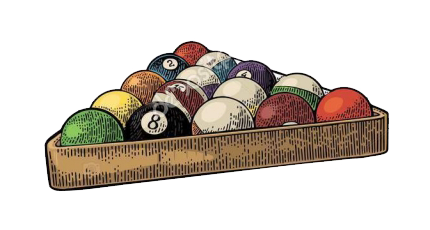
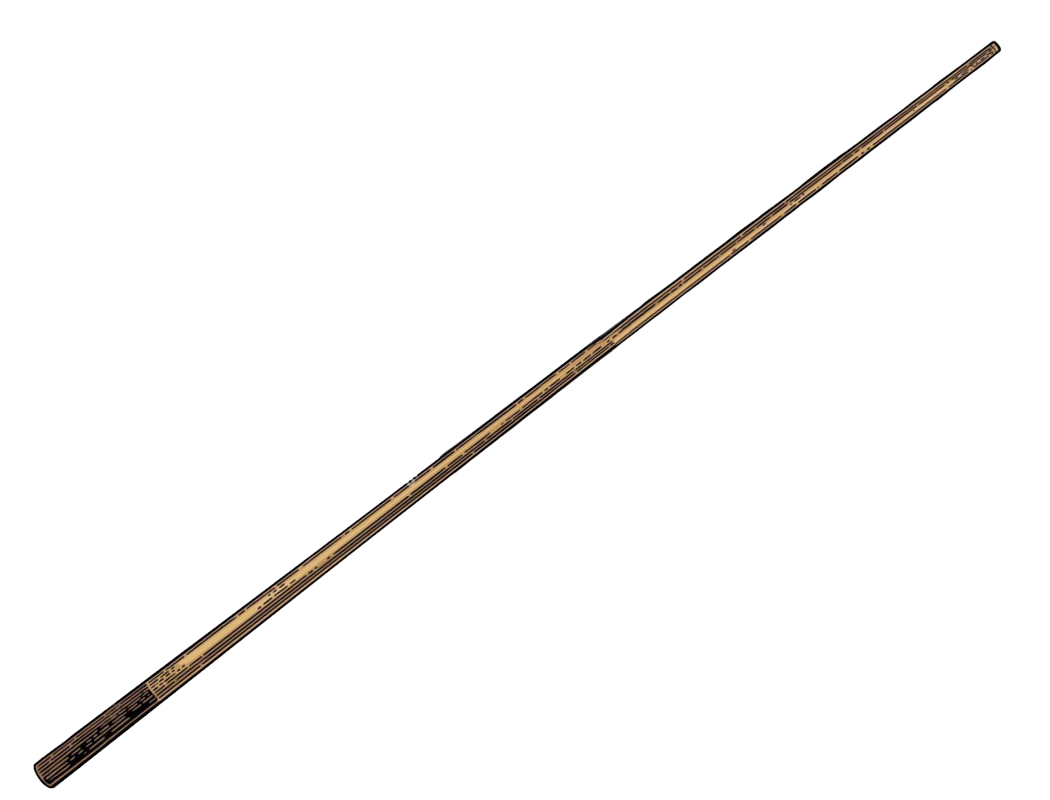


.webp)
